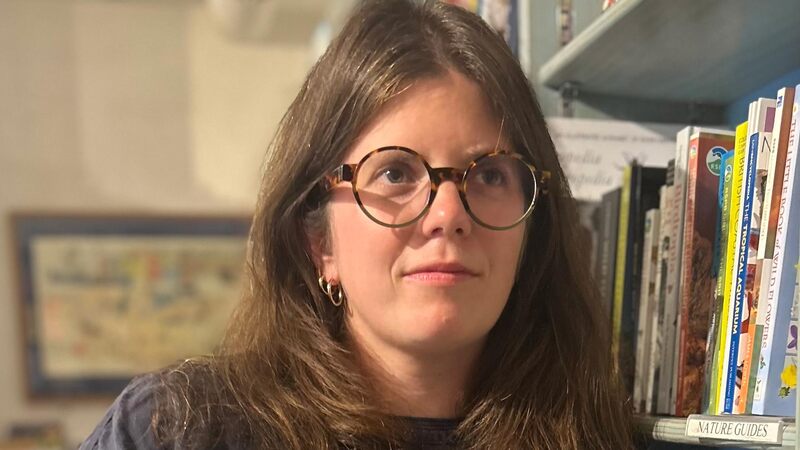You are viewing your 1 free article this month. Login to read more articles.
Why class is a far bigger problem in publishing than you think
The Performers’ Alliance APPG recently held its first evidence hearing for an inquiry on social mobility in performing arts jobs. Along with policy voices and practitioners, the session heard evidence from Drs Louise Ashley (RHUL) and Sam Friedman (LSE). They spoke about their research into barriers to social mobility across a range of jobs, including acting and working in television. What became clear was there are complex and often ‘hidden’ barriers to entry into these professions that are not just about talent or qualifications.
The lack of working class origin individuals, of women, and of people of colour, across cultural jobs is closely connected to these hidden barriers. In publishing we know there are major issues of underrepresentation. In terms of social class, which has been a major focus of recent articles in The Bookseller, we can see publishing has a big problem. According to analysis of the Office for National Statistics’ Labour Force Survey almost half (47%) of all authors, writers and translators in the British workforce had parents working in higher professional or managerial occupations. In contrast, only 10% of had parents doing routine and manual, or ‘working class’ occupations. Across the industry as a whole, including occupations such as editors and journalists the figures are still highly skewed towards those from middle class starting points- 43% as opposed to 12%. This is in contrast to the rest of the population, where around 14% of the population are from higher professional and managerial origins, and around 35% of the population are from working class origins.
There are lots of explanations for the absence of working class origin people from publishing, many of which were highlighted in The Bookseller’s recent class issue. However, what if our understanding of class itself is one of the things that causes problems? At once a way of describing particular social characteristics, and at the same time a hidden barrier to success?
The meaning of class, and how it is discussed, matters. This is especially true in an industry like publishing, where telling stories, often about one’s own experience, is a crucial element of success. As The Bookseller’s articles have indicated, class is a very tricky subject to discuss. It is also equally complicated to research! The data presented earlier in this piece comes from asking respondents to the Labour Force Survey about their parents’ occupation when they were growing up. This allows researchers to understand where individuals were located in the class structure as children, their class origins. This is also one of the approaches adopted by the BBC, The Civil Service, and was recently adopted by the British Film Institute. Other approaches include asking individuals about the type of school they attended or their parents’ level of educational qualifications, also used by the BBC.
These measures don’t use self-identification. Although how people narrate their class identity is an important and fascinating question, it is not as useful as other measures if we are interested in workforce demographics. Understanding more about the workforce allows us to see who is missing from the industry. Self-identification has problems because many people, irrespective of where we might place them in the class structure as a result of their occupation, identify as working class. British Social Attitudes Survey data suggested 60% say they are working class. However, we know from a whole range of sociological research that people are keen to be seen as ‘ordinary’ and they draw cues about their social location in relation to others they know, such as friends, family, and co-workers. As a result, even those from very privileged starting points may be keen to stress their ordinariness, and feel they are not as privileged as those around them. Thus, if we want to know about class in publishing we need more accurate ways of identifying people’s class background.
The data we have using parental occupation allows us to more accurately understand the class barriers in publishing. In particular it means we can focus on those who are most likely to be excluded, particularly as class intersects with gender and ethnicity. It also allows us to add context to The Bookseller’s detailed discussions of experience of class based discrimination.
These experiences tell us about the role of networks and ‘who you know’ as ways of accessing jobs; networks that are often developed at the most elite educational institutions, regardless of subject studied; the importance of London (with its associated costs and housing inequalities) to the industry; the role of internships; and to factors that are more intangible, such as the biases, whether conscious or not, of people hiring. This last point sits alongside the perceptions of talent. Hiring in publishing is like many other middle class occupations, as it is often a process of ‘cultural matching’ and having the ‘right’ class background, rather than talent or ability. More accurate data, with a clearer picture of publishing’s class problem, is the start of bringing these hidden barriers to light.
Dave O’Brien is Chancellor’s Fellow in Cultural and Creative Industries at the University of Edinburgh, and was co-author of the Panic! report.














